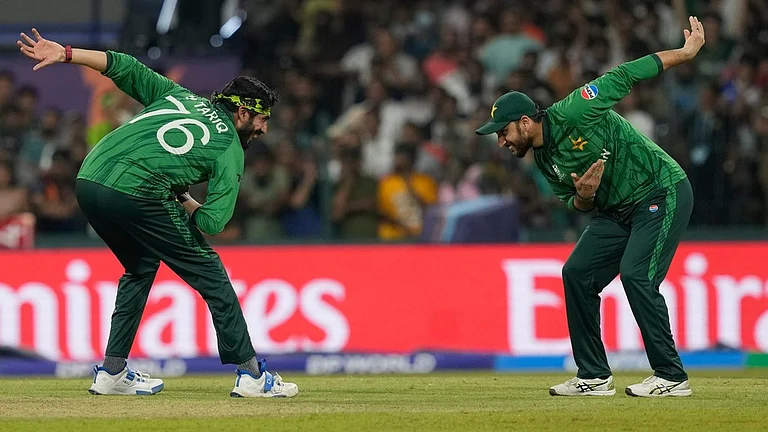Two weeks ahead of the Rajasthan polls, Home Minister Amit Shah in a rally promised that if the voters could bring the double-engine government to the state under the “leadership of Narendra Modi”, it would investigate all the corruption charges which the Congress has been accused of and “recover the money of the poor”. While voting was underway in the state on November 25, BJP leader Satish Poonia said the people will vote for a “double-engine” government to eradicate issues such as poor law and order, crimes against women, paper leaks, and so on.
Rajasthan, which has seen an anti-incumbency trend since the early 1990s, has never voted for one party twice. In this Assembly elections too, it has failed to break the anti-incumbency trend. As of 6:00 PM, the BJP has won 91 seats while the Congress is at 52, according to the Election Commission of India. Earlier, in November, a ground analysis had hinted at a marginal victory for the Congress. But the latest trends have shown the BJP is likely to have a clean sweep.
The metaphor of double-engine sarkar has been coined by the saffron party and extensively used during poll campaigns across states to push voters to choose the same government (NDA) at the state and centre levels for “better development purposes”.
Now, as the Election Commission of India results indicate a commanding lead of the BJP in Madhya Pradesh and Rajasthan, Maharashtra Chief Minister Eknath Shinde on Sunday credited the double-engine BJP government for the party's success in the states. As the counting is coming to an end, BJP candidates have already begun speaking on the hopes of the double-engine government in these states.
In Rajasthan, several leaders have used the term over and over again to make it sound synonymous with ‘development by the BJP’. “Rajasthan needs a double-engine government … it’s only the BJP sarkar’s double-engine that can bring about welfare in the state,” says BJP’s MLA-candidate Diya Kumari from Vidhydhar Nagar.
Commenting on what did not work for the Congress in Rajasthan, political analyst Vaibhav Patel told Outlook, says: “The factionalism between Ashok Gehlot and Sachin Pilot has proved to be a major denting factor for the Congress’s plummeting seat count.” Patel points out that unlike 2018, Tonk MLA Sachin Pilot’s campaign lacked “his charm”. “It could have been because of the 2022 rift between Gehlot-Pilot. If Pilot campaigned the way he did for 2018, Congress could have had an edge this time,” says Patel.
In a ripple effect, the Gurjar community who have been Pilot loyalists, was dissatisfied with the Congress’s functioning and Pilot was aware of the community not voting for the Congress, opined Patel.
Further, corruption charges like the Rajasthan paper leak played against the ruling government. The BJP picked up these factors, furthering them with the communal politics around the death of Kanhaiya Lal in Udaipur, to rage against Gehlot. Rajasthan also suffers from an acute water crisis, a lack of educational facilities, and the highest rate of crimes against women. Although with successive governments coming and going, there has been no such permanent solution to any of these issues, it’s ultimately the equation of caste and community politics that comes to decide who wins the seats. “However, it is important to mention that the anti-incumbency trend is also influenced by individual issues specific to communities,” says Patel.
In 2007-08, it was the protests of the Gurjars and Meena communities against the ruling BJP over reservation that led to the victory of Congress. In 2013, it was the rise of Modi at the Centre that turned the tides towards BJP. Again in 2018, it was the agitation against Vasundhara Raje’s government that swept Congress to power. Back then, the Rajpur community from Western Rajasthan, which has been loyal to the BJP, voted in large numbers for independent leaders from their community.
This year, it is been said that the BJP’s lead has been more in the Eastern Rajasthan belt which has been its weak point since 2018 where it won one out of 20 seats. But as counting is underway, it is seen that BJP has a good edge over the eastern region while inching near to its hopes of a ‘double-engine’ government.


























